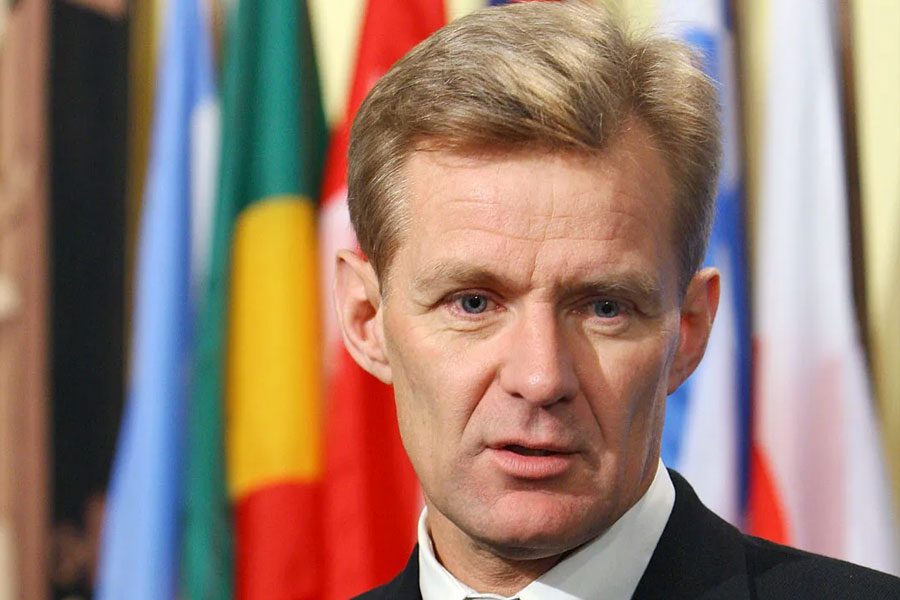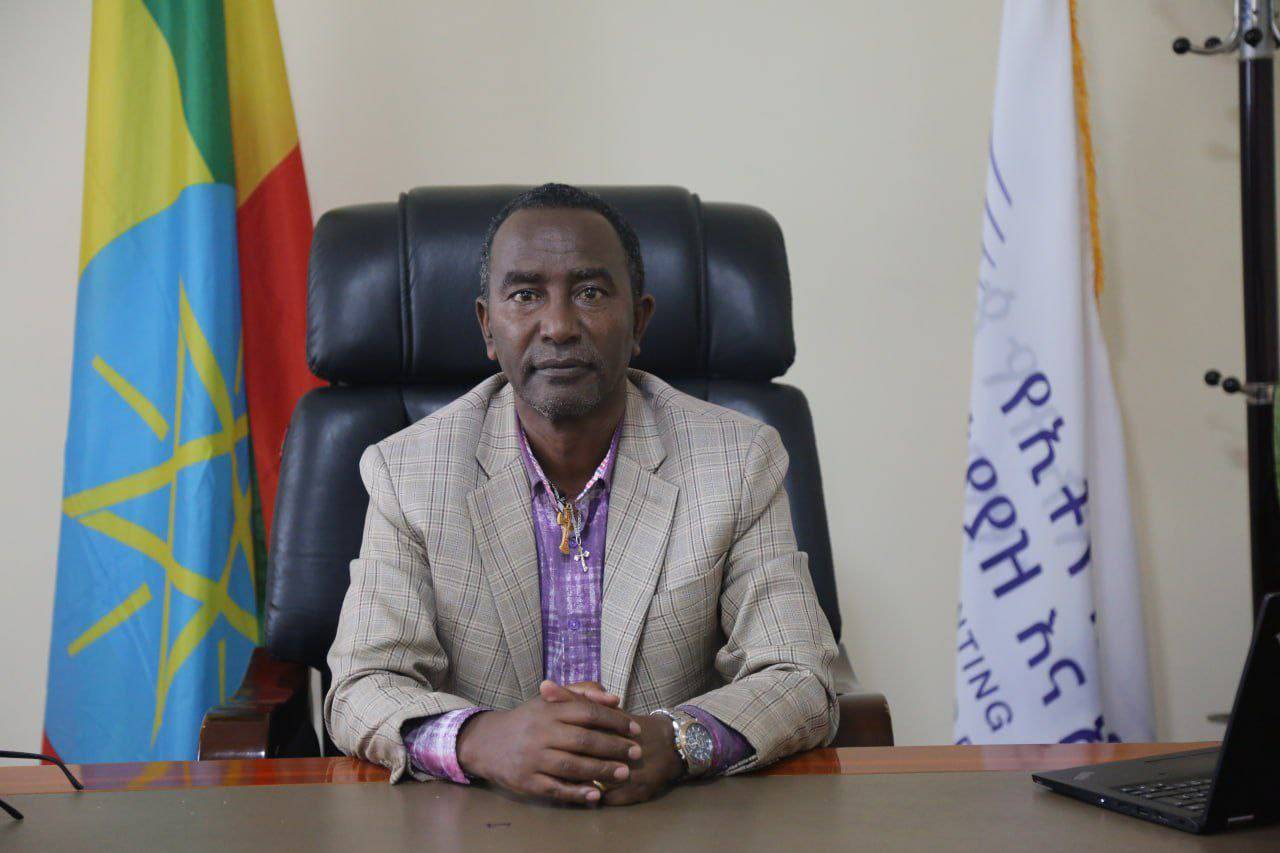
Verbatim | Jun 17,2023
Mar 5 , 2022
By Christian Tesfaye
There is a war once again in Europe, decades after the Yugoslav Wars led to the death of over 100,000 people and the emergence of new states in Eurasia. This time around, it is between a revisionist Russia and a defiant Ukraine fighting to preserve its independence, after the former’s invasion. The situation is changing rapidly but the Ukrainians are believed to have put up a much stronger resistance than expected, with massive military financial support coming from Western Europe and the United States.
As tragic as the whole thing is, it is also exposing some of the racism embedded in global media coverage and the response being taken in response to Russia’s aggression. The most offending has been how reporting on the war is trying to differentiate the crisis from those that take place in the Middle East and Sub-Saharan Africa. There seems to be an effort to remind us that this time around, the war is affecting White people with European blood running through their veins, something not meant to happen to such a “civilised” part of the world.
A Ukrainian official said that this is a very emotional experience for him because “people with blue eyes and blond hair” are being killed. A CBSreporter, asked why Poland is so willing to take in refugees now, said, “These are not refugees from Syria … these are Christians, they are White.”
Even the response to the refugee crisis is markedly different as a million Ukrainians flee their country. The European Union is planning to grant a right of stay for millions of Ukrainians that may eventually flee the conflict. It would allow them to stay for up to three years in any EU country with the guarantee of social welfare and employment and residency permits. The 27-country bloc has a temporary protection directive from back in the 1990s that has never been activated, even when Africans and people from the Middle East fleeing conflict and deprivation were drowning in the Mediterranean Sea trying to cross into Europe. For those non-Whites, it was mostly barbed wires and walls that greeted them. European Commission President Ursula von der Leyen visited the Greek-Turkey border once and proclaimed that the former was “our European shield.”
The saddest scene is perhaps on the Poland border where Africans are being reportedly turned away as they try to escape the war in Ukraine. They risk being denied a passage of safety because, if anyone can believe it, they are unable to produce the appropriate visa.
The African Union has spoken out against the double standards, at least on the matter of Africans in Ukraine not being able to cross the border into Poland. It has pointed out that any person fleeing conflict has a right to cross a border under international law. It has not minced words, adding that singling out Africans at the border would be “shockingly racist.”
But the AU needs to do more. It has to make sure that the responses by the United States and the European Union to the Russia-Ukraine conflict do not make collateral damage out of African countries. Russia is one of the largest exporters of oil around the world. Both countries also export large amounts of inputs for fertilisers and make up a third of global wheat exports. Sanctions that would exacerbate already limited supply due to the war and COVID-19 induced supply problems will raise the cost of living for millions of poor Africans whose countries do not provide them with adequate social welfare.
The US and Europe have been careful not to debilitate energy exports from Russia through sanctions (events are fast-moving so this may change), because this would worsen inflation back home. But they do not care as much about fertilisers and wheat – especially the latter as they are exporters themselves.
The AU must make the case that some of the sanctions will have massive unintended consequences for food insecurity in most African countries. It should stress an immediate ceasefire between the two parties and for Russian forces to pull out of Ukraine immediately but also lobby for exemptions on wheat and fertiliser to the sanctions being applied.
The more the AU fails to make itself heard, the more likely that the powers that be will continue to apply double standards that will make a collateral damage out of Africa.
PUBLISHED ON
Mar 05,2022 [ VOL
22 , NO
1140]


Fortune News | Sep 21,2025

Fortune News | May 06,2023

Commentaries | Jun 08,2019

Radar | Dec 10,2022

Viewpoints | Sep 14,2024

Photo Gallery | 178403 Views | May 06,2019

Photo Gallery | 168603 Views | Apr 26,2019

Photo Gallery | 159402 Views | Oct 06,2021

My Opinion | 137072 Views | Aug 14,2021
Commentaries | Oct 25,2025

Dec 22 , 2024 . By TIZITA SHEWAFERAW
Charged with transforming colossal state-owned enterprises into modern and competitiv...

Aug 18 , 2024 . By AKSAH ITALO
Although predictable Yonas Zerihun's job in the ride-hailing service is not immune to...

Jul 28 , 2024 . By TIZITA SHEWAFERAW
Unhabitual, perhaps too many, Samuel Gebreyohannes, 38, used to occasionally enjoy a couple of beers at breakfast. However, he recently swit...

Jul 13 , 2024 . By AKSAH ITALO
Investors who rely on tractors, trucks, and field vehicles for commuting, transporting commodities, and f...

Oct 25 , 2025
The regulatory machinery is on overdrive. In only two years, no fewer than 35 new pro...

Oct 18 , 2025
The political establishment, notably the ruling party and its top brass, has become p...

Oct 11 , 2025
Ladislas Farago, a roving Associated Press (AP) correspondent, arrived in Ethiopia in...

Oct 4 , 2025
Eyob Tekalegn (PhD) had been in the Governor's chair for only weeks when, on Septembe...

Oct 25 , 2025 . By YITBAREK GETACHEW
Officials of the Addis Abeba's Education Bureau have embarked on an ambitious experim...

Oct 26 , 2025 . By YITBAREK GETACHEW
The federal government is making a landmark shift in its investment incentive regime...

Oct 29 , 2025 . By NAHOM AYELE
The National Bank of Ethiopia (NBE) is preparing to issue a directive that will funda...

Oct 26 , 2025 . By SURAFEL MULUGETA
A community of booksellers shadowing the Ethiopian National Theatre has been jolted b...